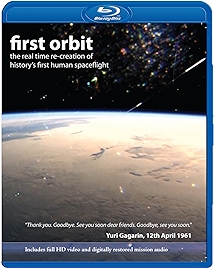A movie for every day of the year – a good one
27 January
The Outer Space Treaty signed, 1967
On this day in 1967 the USA, USSR and UK jointly signed the Outer Space Treaty, more formally known as the Treaty on Principles Governing the Activities of States in the Exploration and use of Outer Space, including the Moon and Other Celestial Bodies. It is the treaty that seeks to impose some legal, agreed structure on regions beyond our own world. It is the first move towards Space Law. Its basic tenets are that no signatory state shall place nuclear or other weapons of mass destruction into Earth orbit. It restricts the use of the Moon and other celestial bodies to peaceful endeavour, bans the placement of military installations on any extra-terrestrial body, and forbids any government from claiming sovereignty over any offworld planet or territory. The Universe, it asserts, is the “common heritage of mankind”. Though the treaty has since been ratified by most of the countries of the world, a follow-up, 1979’s Moon Treaty, has not been ratified by any country with the capability of space exploration.
First Orbit (2011, dir: Christopher Riley)
Yuri Gagarin was the first human to travel into outer space, his Vostok 1 spacecraft having gone up into the sky in April 1961, orbited the earth once, then returned Gagarin to the ground. The entire flight took 108 minutes and director Christopher Riley’s film does a simple thing: it seeks to recreate the flight. But how? There is no footage from Gagarin’s flight. The solution that Riley – who conceived the similary wonderful space doc In the Shadow of the Moon – came up with is to take footage from the International Space Station, on an orbit closely matching Gagarin’s and at the same time of day, and match it to the audio recordings made by Gagarin as he spun above the Earth. “If you want to hear someone saying ‘I’m feeling great’ in Russian a hundred and fifty thousand times, this is the film for you.” Thanks to InterArmaEnimSilentLeges, a user on the IMDb, for that comment. And InterArmerwhatsit does have a point. At some level this is a remarkably drama-free offering. We see actual, very grainy footage of Gagarin making the walk to the spacecraft, we see the rocket launch, then we cut to the modern footage, with Gagarin’s commentary, while Philip Sheppard’s Philip Glass-like soundtrack battles against the pops and crackles, and occasional snatches of the English language service of Radio Moscow fill in the odd gap. There’s no doubting that Gagarin is repeating himself, constantly telling ground control that he feels fine, he feels good, he’s ok. But it’s worth pausing here for a second. Gagarin really was the first to “boldly go where no man has gone before”. And no scientist really had any idea what the effect of all those G forces, the zero gravity, spooky invisible rays out in space, god knows what, would be. The reassuring mantra is Gagarin in a spacecraft the size of a large suitcase keeping constant contact, saying in effect, “I’m still alive…now…now…still alive now…and still alive now”. If he stops speaking, ground control will at least know exactly when he died. Useful knowledge. InterArmerthingie obviously didn’t like the film, and that’s fair enough, but I found the effect hypnotic. Actually to the point where I kind of fell asleep for a minute – the Earth spinning, the repetitive music, the rhythmic speech patterns. But here’s the thing. I remember this unusual documentary, having watched it when it was a big YouTube hit, and there are films I watched only four days ago that I only now know I’ve seen because I took notes.
Why Watch?
- Footage of Gagarin, a hero of humanity
- First person into space!
- See the earth drifting by – you might see your house
- A unique documentary that at some level isn’t a documentary at all
First Orbit – at Amazon
I am an Amazon affiliate
© Steve Morrissey 2014

